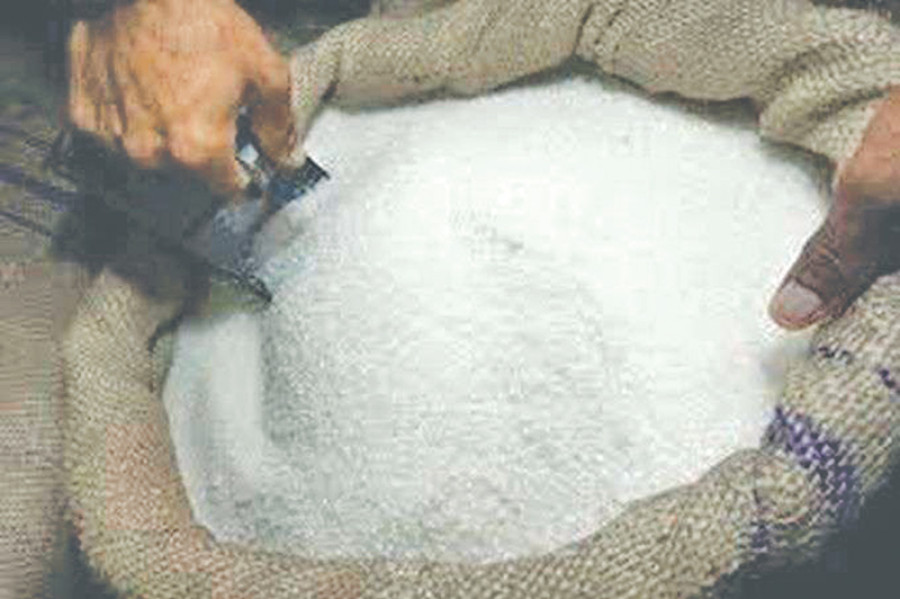National
Sugar producers’ joy is bitter pill for consumers
The government decision to impose quantitative restrictions on sugar imports is facing a public outrage as the move has given free rein to domestic producers to increase the sugar price haphazardly ahead of the festival season.Last month, the government, at the behest of domestic sugar producers, imposed imports restriction. The repercussion was immediately felt in the market as sugar prices jumped from Rs65 per kg to Rs85-90 per kg within days.
The government decision to impose quantitative restrictions on sugar imports is facing a public outrage as the move has given free rein to domestic producers to increase the sugar price haphazardly ahead of the festival season.
Last month, the government, at the behest of domestic sugar producers, imposed imports restriction. The repercussion was immediately felt in the market as sugar prices jumped from Rs65 per kg to Rs85-90 per kg within days.
Imported sugar costs less than Rs60 per kg in the market, according to traders. Before the restriction, domestic sugar producers had promised the government they would not increase sugar rates. But as consumers are finding out just ahead of Dashain, they did not keep their word.
Sugar is one of the fastest selling and in-demand items during festivals. According to the Ministry of Industry, Commerce and Supplies, the demand for sugar during the month-long festival window—Dashain, Tihar and Chhat—soars to 30,000 tonnes from normal monthly consumption of 8,000 tonnes. The value, if estimated at the current market price, stands at Rs2.7 billion.
On Monday, a majority of the lawmakers at the Parliamentary Public Accounts Committee meeting said they suspect wrongdoing in the deal.
“There is possibly something wrong. We suspect there could be some financial dealings while enforcing the new rule of quota,” said lawmaker Lekh Raj Bhatta.
Another lawmaker Prem Bahadur Ale said that a number of sugar mills were found importing sugar from the Indian market to make a big profit.
“They import sugar from India, re-pack them, and sell under Nepali brand,” Ale said, adding that the government has been promoting market anomalies.
Last year, the government doubled customs duty on sugar to 30 percent as demanded by private sugar producers.
A government official said the decision aims to protect domestic sugar producers who complained they were unable to sell because imported sugar was relatively cheaper.
“The price of sugar in international market has dropped heavily and due to surplus production this year, it directly affected sugar mills in Nepal. That is why the government came up with the measure to protect the domestic producers,” said Chandra Kumar Ghimire, secretary at the ministry.
This year domestic mills produced 175,000 tonnes of sugar, but producers were unable to send them to the market as it was already flooded by sugar imported at cheaper rates, he said.
The parliamentary committee also directed the government to conduct monitor the market effectively and ensure supply of essentials and quality products. The government has been directed to submit reports to the parliamentary committee regularly. The committee has also directed the government to enforce strict measures under which sugar producers pay the farmers on time.
Lawmakers also expressed concerns that the government has been promoting sugar mills that have a significant amount of money to be paid for sugarcane for years. There are regular tussles between sugar and sugarcane producers as sugar producers regularly purchase from farmers on credit and pay them after a few years.




 17.12°C Kathmandu
17.12°C Kathmandu














